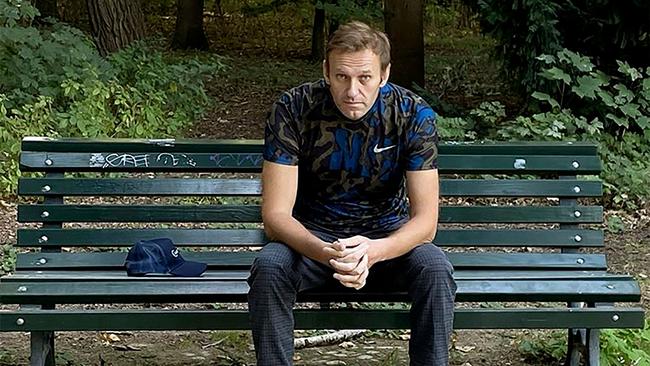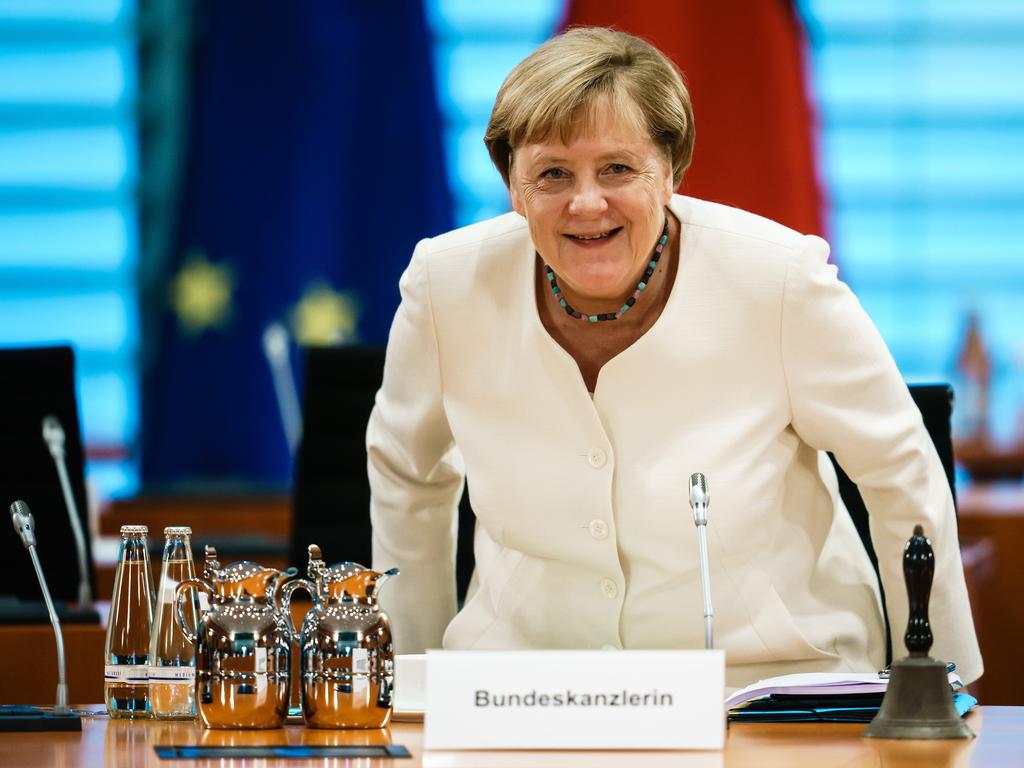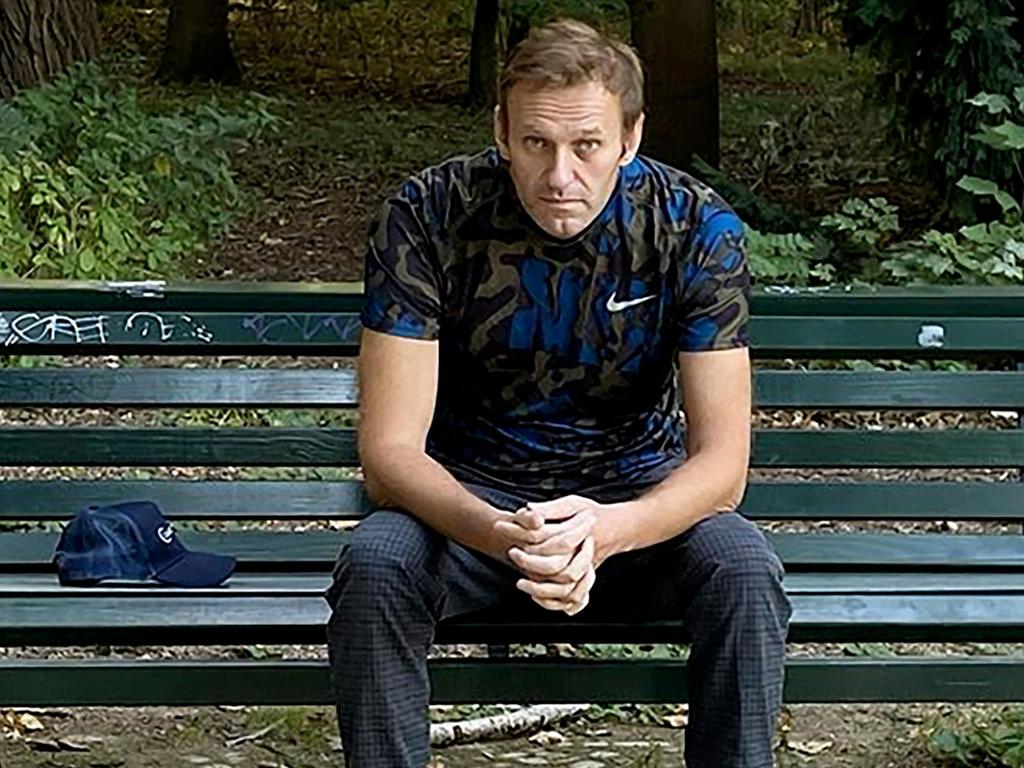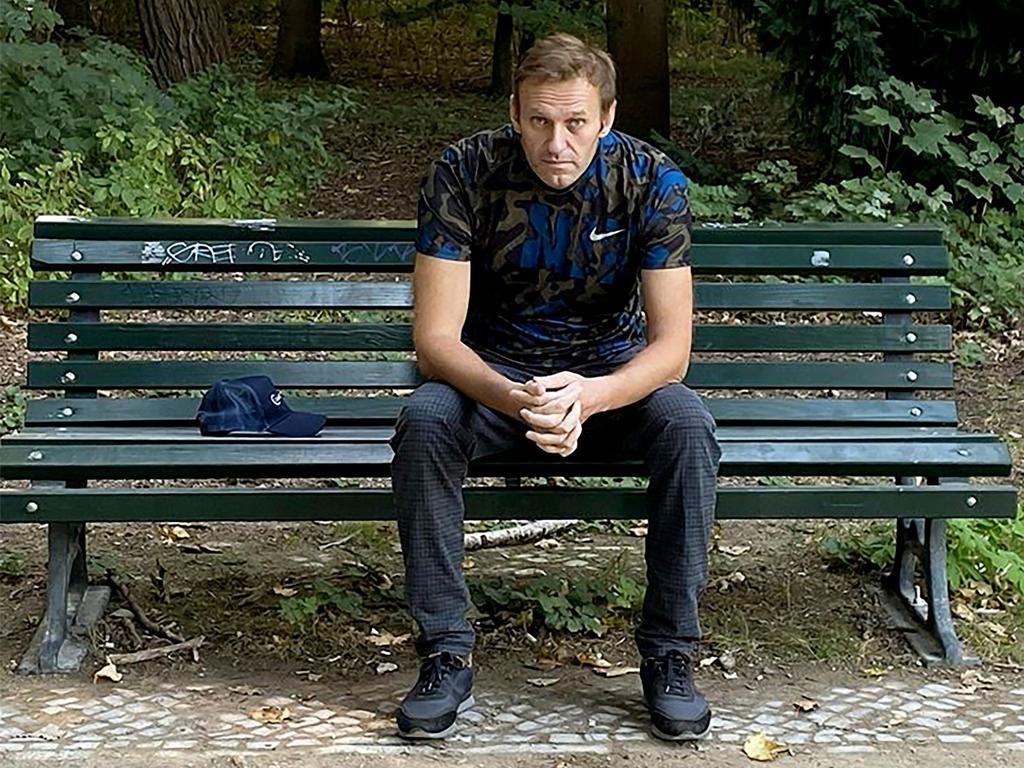Pilots ‘ignored bomb alert’ to save Alexei Navalny
Alexei Navalny’s life was saved by pilots who ignored warnings of a ‘bomb alert’ to make an emergency landing in Siberia.

Alexei Navalny, the Kremlin critic who collapsed on a passenger jet after being poisoned, has said his life was saved by the pilots who made an emergency landing in Siberia despite warnings that the airport was being evacuated over a bomb alert.
The Russian opposition leader spent two days in hospital in Omsk, western Siberia, before being flown to Berlin after the incident on August 20. Germany insists it has proof that he was poisoned with novichok, a Soviet-era nerve agent. Russia says allegations that it orchestrated an attempt on Mr Navalny’s life are “unacceptable”.
The pilots of the S7 commercial airliner, flying from Tomsk to Moscow, requested permission to land in Omsk after Mr Navalny, 44, lost consciousness about 45 minutes into the flight. Five minutes later an unknown person called in a bomb threat to the airport, Galina Gavrish, an airport employee, told the Znak.com news website.
When the pilots asked for medical assistance they were told not to let passengers disembark. “There’s an evacuation going on in the airport,” an unnamed member of staff said, according to a leaked recording. The bomb threat turned out to be a hoax.
“As I understand, the killers’ plan was simple: I would feel bad 20 minutes after takeoff, after another 15 minutes I would pass out,” Mr Navalny, who was discharged from hospital in Berlin last week, wrote on Instagram. “It was guaranteed that medical assistance would be unavailable. In another hour I would have continued my journey in a black plastic bag on the back row.”
Mr Navalny said this would have been the case had the pilots not “quickly landed the plane in Omsk, despite the announcement of a bomb threat”. He also praised airport medical staff, who immediately injected him with atropine, a drug used to treat poisonings with nerve agents and pesticides. “They didn’t tell lies about diabetes, etc, but immediately said clearly, ‘This is toxic poisoning,’ ” Mr Navalny said.
Russian officials, including Omsk’s chief toxicologist, have said there is no indication that Mr Navalny was poisoned and have suggested that he fell ill because of excess dieting or blood-sugar problems. President Putin is believed to have told President Macron of France that Mr Navalny may have poisoned himself to try to discredit Russia.
Ms Gavrish said Omsk airport had also received hoax calls on August 9 and August 13. The evacuation of the airport would not have prevented staff from providing medical assistance, she said.
Mr Navalny revealed yesterday (Monday) that Angela Merkel visited him in the Berlin clinic where he underwent treatment. “It was a private conversation,” he said. “I’m very grateful.”
Steffen Seibert, Mrs Merkel’s spokesman, declined to disclose details of what was said at the meeting.
Der Spiegel wrote: “The secret visit to Navalny is a further sign of how much the chancellor is committed to Navalny and will not be ready to let the case rest for the time being.”
Olaf Scholz, the German vice-chancellor, urged Moscow to co-operate in the investigation into what happened. “It was a brutal, murderous attack,” he told reporters yesterday (Monday). “And that is why we call on Russia to co-operate in the investigation. And of course Europe will have to decide together on an appropriate response.”
Russian opposition activists have frequently faced violence and even dubious criminal charges, and Mr Navalny is no exception. In 2017 he almost lost the sight in his right eye when a pro-Putin activist threw a chemical substance in his face.
The Times







To join the conversation, please log in. Don't have an account? Register
Join the conversation, you are commenting as Logout